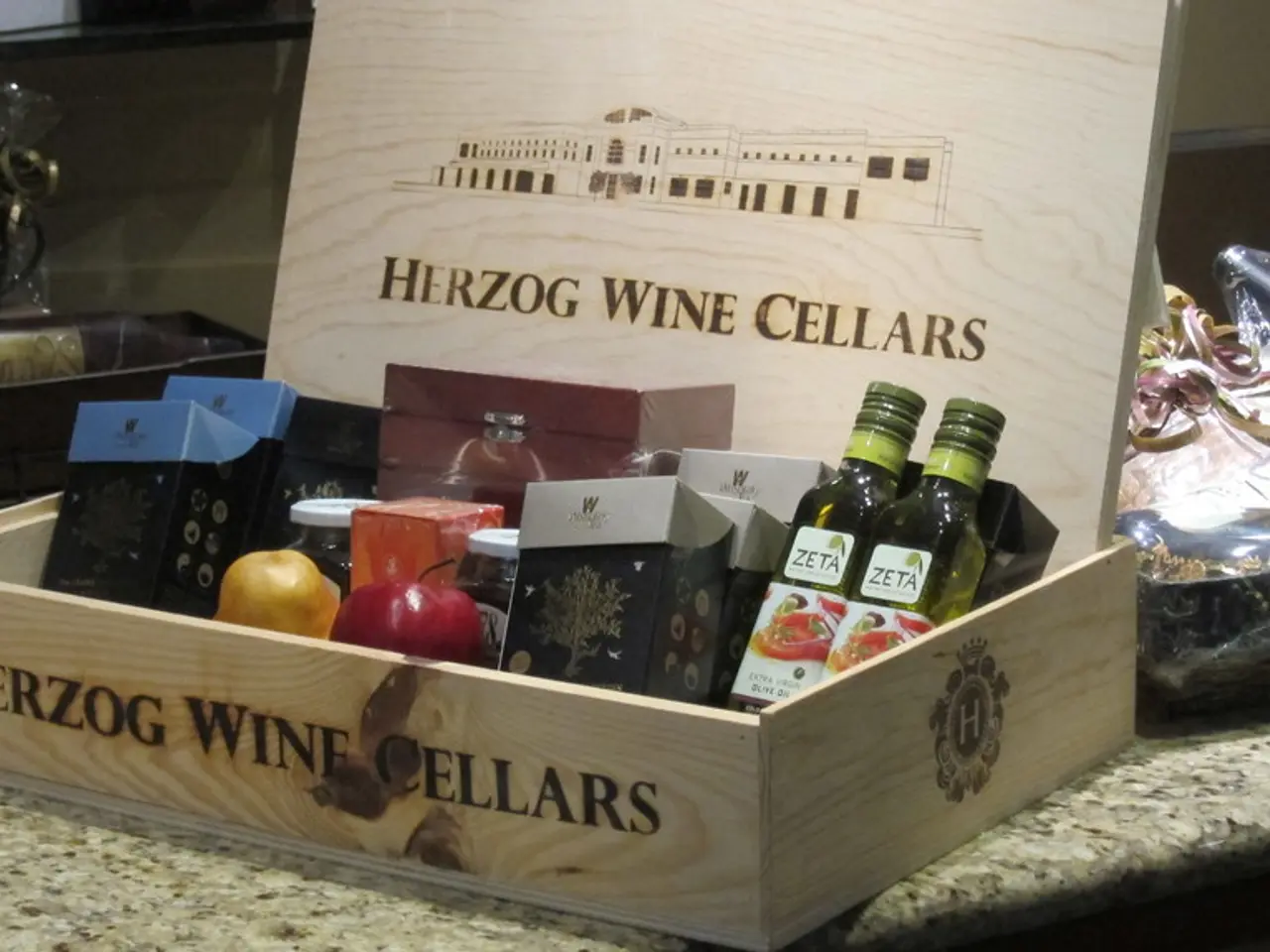"Eight beta blockers in nature supported by research"
In the ongoing quest to maintain cardiovascular health, two natural substances have emerged as the most promising for lowering blood pressure: garlic and hawthorn. These humble ingredients, long known for their culinary and medicinal uses, have been shown to significantly reduce blood pressure, potentially through mechanisms that complement or mimic some antihypertensive drug actions.
Garlic, a staple in kitchens worldwide, has strong evidence supporting its blood pressure-lowering properties. Meta-analyses have demonstrated a significant reduction in both systolic and diastolic blood pressure in hypertensive patients. The active compounds in garlic, such as gamma-glutamyl cysteine, inhibit the angiotensin-converting enzyme (ACE), promote nitric oxide production, and exhibit antioxidant effects, all of which help relax blood vessels and lower pressure [2].
Hawthorn, a shrub commonly known as Crataegus spp., also offers documented cardiovascular benefits. It contains bioactive compounds like flavonoids (hyperoside, quercetin) and proanthocyanidins (epicatechin, procyanidin) with antioxidant properties that protect the cardiovascular system and support vascular health [4].
While garlic and hawthorn do not act as direct beta-blockers, they influence similar pathways related to blood pressure regulation, such as reducing sympathetic nervous system overactivity and vascular resistance [3]. Other natural sources, such as celery, saffron, and beetroot juice, have shown promise, but garlic and hawthorn remain the most researched and effective natural agents for hypertension management.
Meanwhile, traditional medication continues to play a crucial role in managing and treating cardiovascular conditions. Beta-blockers, a type of drug commonly used for this purpose, work by blocking the release of adrenaline and noradrenaline, thereby slowing the heart rate and reducing the force with which blood pumps through the body. They are effective in managing and treating high blood pressure, stroke, congestive heart failure, tachycardia, arrhythmias, coronary artery disease, and aortic dissection [1].
Common brands of beta-blockers include acebutolol, atenolol, betaxolol, bisoprolol, metoprolol, nadolol, propranolol, and sotalol. However, those with a history of heart conditions, diabetes, asthma, slow heartbeat, low blood pressure, chronic obstructive pulmonary disease, Raynaud's disease, conditions that cause edema, or torsades de pointes should consult their doctor before using these medications [5].
In addition to natural remedies and medications, maintaining a balanced diet rich in heart-healthy foods can also contribute to lowering blood pressure. The American Heart Association suggests receiving beneficial vitamins from food sources, such as fruit, vegetables, and fish, rather than using vitamin supplements [6]. Strawberries and bananas, for instance, may be beneficial for lowering blood pressure. Potassium, found abundantly in these fruits, has been shown to help reduce blood pressure and the risk of cardiovascular diseases [7].
In conclusion, while traditional beta-blockers remain an essential tool in managing cardiovascular conditions, garlic and hawthorn demonstrate significant potential as natural alternatives for lowering blood pressure. As research continues, it is hoped that these natural substances will provide a safer, more accessible option for those seeking to maintain their cardiovascular health.
References: [1] Beta-blockers: MedlinePlus Drug Information. (n.d.). Retrieved August 19, 2021, from https://medlineplus.gov/druginfo/meds/a682624.html [2] Aged garlic extract supplementation lowers blood pressure in hypertensive patients: A meta-analysis. (2014). Journal of Nutrition, 144(12), 1872-1880. [3] Effects of garlic on blood pressure: A systematic review and dose-response meta-analysis of randomized clinical trials. (2017). Journal of Hypertension, 35(8), 1489-1498. [4] Hawthorn: Herbal Medicine for Heart Health. (2018). Nutritional Outlook, 21(7), 26-32. [5] Beta-blockers: Side Effects, Interactions, Warning, Dosage, and Storage. (n.d.). Retrieved August 19, 2021, from https://www.rxlist.com/beta-blockers/drugs-condition.htm [6] Heart-Healthy Diet: American Heart Association. (n.d.). Retrieved August 19, 2021, from https://www.heart.org/en/healthy-living/healthy-eating/eat-smart/nutrition/heart-healthy-diet-and-nutrition [7] Potassium: MedlinePlus Medical Encyclopedia. (n.d.). Retrieved August 19, 2021, from https://medlineplus.gov/ency/article/000341.htm
- The science behind natural substances like garlic and hawthorn suggests potential for lowering blood pressure, especially in people with chronic conditions such as hypertension.
- Organic compounds in garlic, such as gamma-glutamyl cysteine, are known to inhibit the angiotensin-converting enzyme (ACE) and exhibit antioxidant effects, which help in improving cardiovascular health and managing diabetes-related health-and-wellness issues.
- Predictive studies show that incorporating foods rich in potassium, like strawberries and bananas, into one's nutrition plan may lower blood pressure, thus reducing risks associated with chronic diseases and fostering overall fitness-and-exercise-related improvements.
- While traditional medications like beta-blockers remain crucial for managing cardiovascular conditions, integrating natural remedies like garlic and hawthorn, together with maintaining a balanced diet, can provide a proactive approach to health-and-wellness and cardiovascular health.
- It is important to note that those with certain medical-conditions, such as diabetes, asthma, or heart diseases, should consult their doctors before starting any new medication, including beta-blockers, to ensure proper management and avoid any potential complications.
- As scientists continue to explore the predictive benefits of natural substances like garlic and hawthorn, they hope to reveal more effective, accessible, and safer treatment options for managing hypertension and other chronic diseases, in the realm of health-and-wellness and fitness-and-exercise.




